Top 10 South Korean Culture, Customs and Etiquette
Should you remove your shoes when visiting friends? Should you greet those on elevators with a smile? When thinking about the dos and don'ts in your own ... read more...nation, these questions might not seem like the most obvious ones, but things that you might not even consider at home can have a major impact abroad. Here is a list of South Korean Culture, Customs and Etiquette.
-
When meeting someone in South Korea, there are a few fundamental guidelines to remember. The most crucial thing to grasp before entering a social scenario is that there is a clearly defined social hierarchy, and that knowledge greatly influences both verbal and non-verbal communication.
This hierarchy is generally focused on showing respect to individuals who are older or in higher-ranking positions in society. Always be respectful and presume that the person you are speaking with is in a position of authority above you. Offering too much respect will be laughed off in the same manner that your dad would make the bad joke, "Mr. Smith is my father, Call me Jim," which is considerably more acceptable.
Patience and attention to detail are essential for generating a good first impression in a meeting. When addressing a group of individuals, make sure you bow slightly as you go to each person in turn. It's customary to shake hands, but only when the senior has extended their hand first.
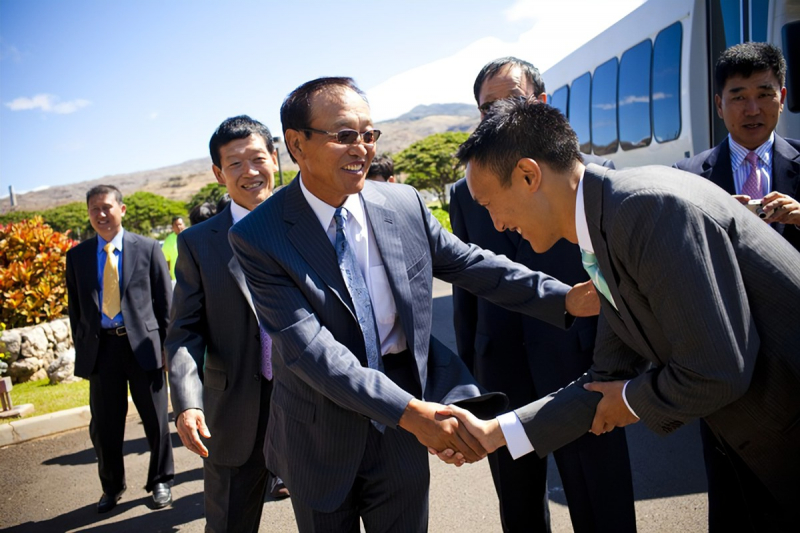
http://sarangheyo520.blogspot.com/ 
https://strengthleader.com/ -
Social connection in Korea revolves mostly around food and drink. The hosts will be delighted to share their cuisine and culture with a foreign visitor. You will be urged to taste a variety of foods, so you should happily accept any suggestions and offers. In Korea, picky eaters are uncommon, thus refusing to try something new could be interpreted as a criticism on the person who is providing it. Koreans are quite curious in how a westerner will respond because they are very proud of their cuisine.
There will be food and beverages available, so no one should prepare their own beverages. All visitors are asked to follow the lead of the oldest or most senior participant. Everyone should try to stay at the table until the most senior person says the evening is ended.
Chopsticks should never be used to point or for any other function than that for which they were designed. When not in use, chopsticks should be laid neatly and side by side on the table. Don't let them protrude from a dish of rice. This has symbolic meanings connected to funeral customs.
For the vast majority of places, tipping is neither customary nor appropriate. The wages paid to servers are fair, and they do not depend on tips to make up the difference. For large groups, a few western-style hotels or restaurants would impose a gratuity, but this is uncommon. It's common to make friends with the employees and owner if you frequent a restaurant or bar. In this circumstance, small physical (non-monetary) gifts can be given to worthy employees.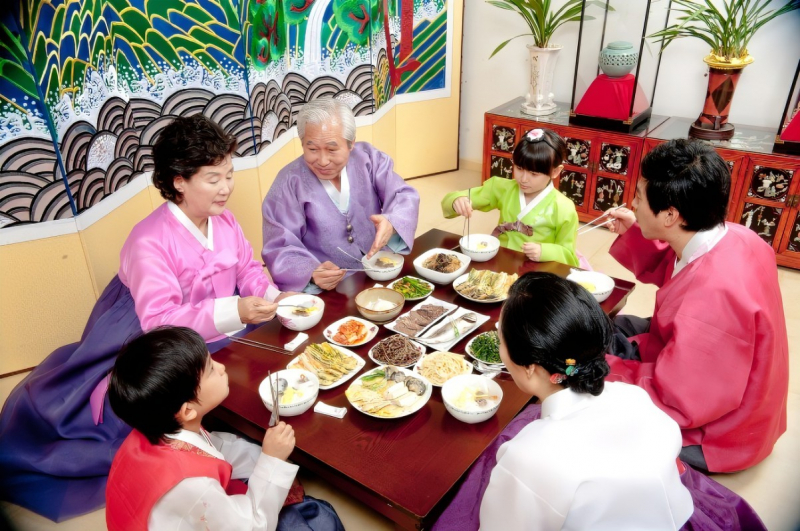
https://heathertarasdrugs1.wordpress.com/ 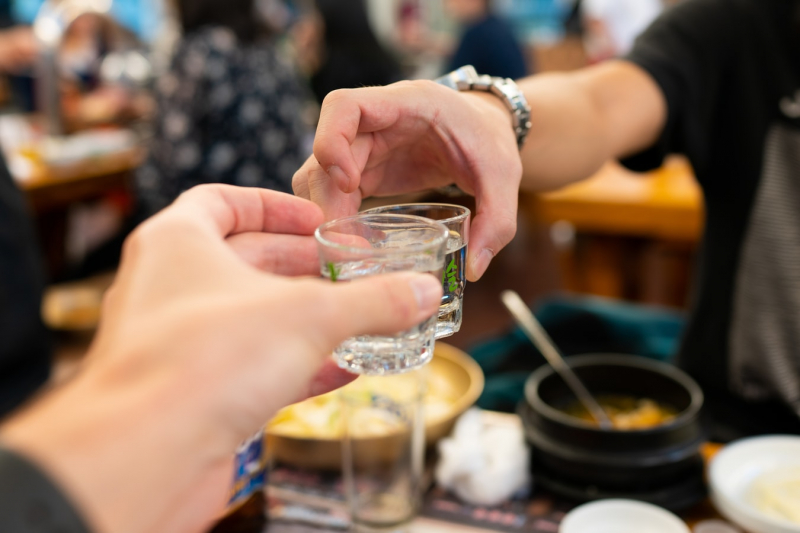
https://www.tripzilla.com/ -
Popular male formal wear trends in Korea Professional dress that is traditional and practical is preferred in Korea. Dark suits and ties are suggested for guys. For western tourists, having facial hair is OK, but among Koreans, it is seen as unprofessional and unclean. The only jewelry that guys often wear is wedding rings.
A conservative clothing is good for women, and a business suit is never a bad decision. Everywhere you might be seen in public, including work and dinner, requires the wearing of heels. Be understated when wearing jewelry and other accessories; South Korea is a country that adheres to the maxim "less is more" in this context.
Since Korea has generally accepted western clothing, it would be difficult for anyone to misinterpret your appearance by dressing semi-formally. You should maintain a professional and traditional appearance. It's considered unprofessional to have facial hair. Jewelry on women is permissible, but, body piercings other than earrings are not frequent.

http://koreabridge.net/ 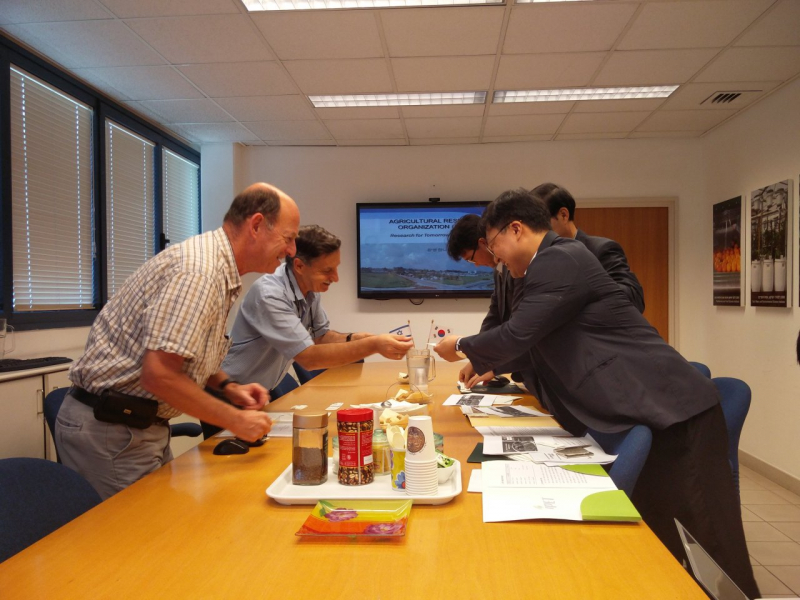
https://www.koisra.co.kr/ -
Feel free to talk about sports, television, and food when you're out with friends. Avoid criticizing anything that has to do with Korea, particularly Korean culture. Keep a cheerful attitude throughout the exchange. Commenting on the South Korean economy's growth or recent sporting victories will be positively appreciated because Koreans are very nationalistic and proud of their country. Another excellent icebreaker is to express interest in their culture by posing inquiries. If salary or other private matters are discussed in public, do not be startled; this is not as taboo as it is in North America.
In Korea, shaking hands with just one hand is considered impolite; two hands are preferred. Why is it viewed as impolite? This most likely dates back to the murky days of royal intrigue, when persons had to demonstrate with both hands that they were not concealing any hidden hazards, such a dagger or poison.
In Korea, there are various acceptable handshake techniques, all of which involve both hands. Shaking when holding both hands first The left hand should be placed on the right wrist, or between the wrist and elbow, if that isn't possible. Alternately, tuck the left arm under the right arm and around the waist.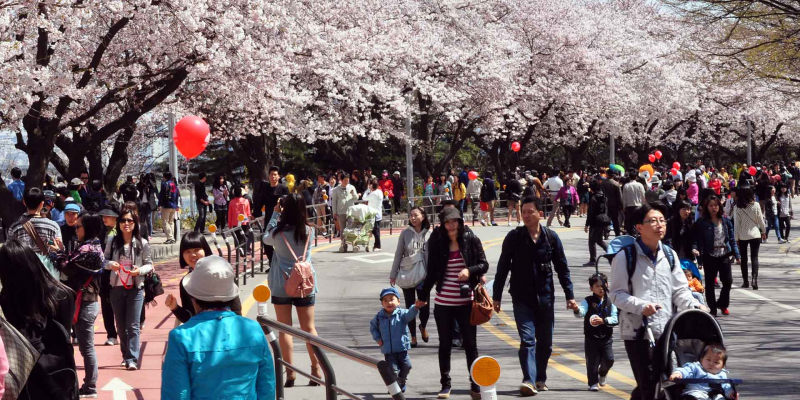
https://www.remotelands.com 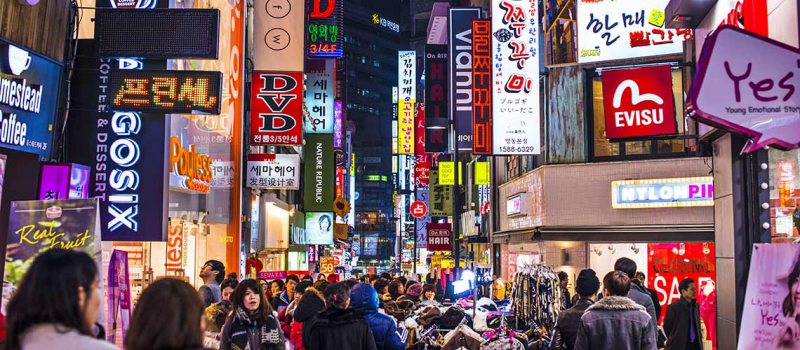
http://www.remotelands.com -
South Korean residences may have stringent recycling regulations, such as a bin designated just for paper and another in the kitchen for food and drink containers. Pour drinks for others instead of yourself. The eldest Korean diner always takes the first bite. People frequently chat loudly in restaurants as a sign of happiness and enjoyment of the fare. Slurping noodles is also acceptable because it demonstrates that you like the food and are appreciating the cuisine.
Similar to other Asian nations, it is courteous to fold the bill and place it in the waiter's hands silently and covertly while leaving a tip in a restaurant as opposed to leaving it on the table or waving the bill in its entirety as is customary in Western nations.
Similar to this, it is increasingly acceptable in homes to fold cash and put it in a piece of paper, ideally an envelope, when giving it to children. The population becomes more conservative the further you are from major cities. Swastikas are frequently observed in Buddhist temples in South Korean culture. Visitors shouldn't be offended by them because they are a religious symbol and do not stand for Nazism or anti-Semitism.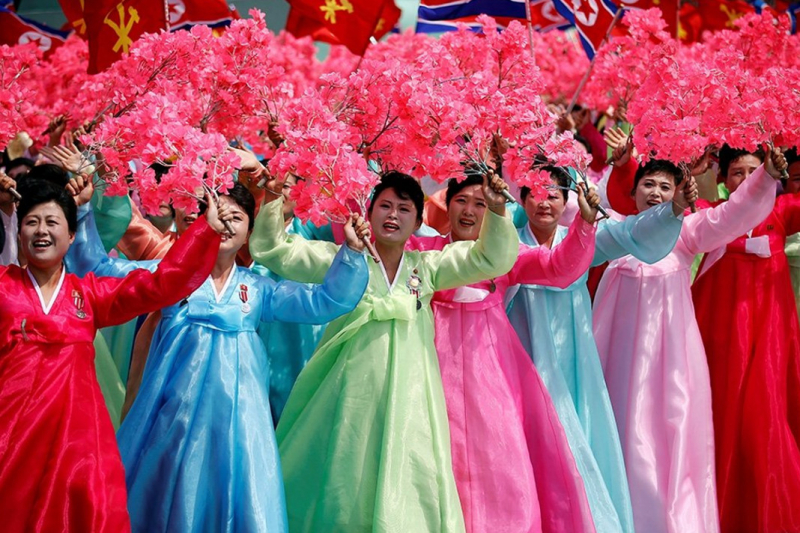
https://www.thetravelerszone.com 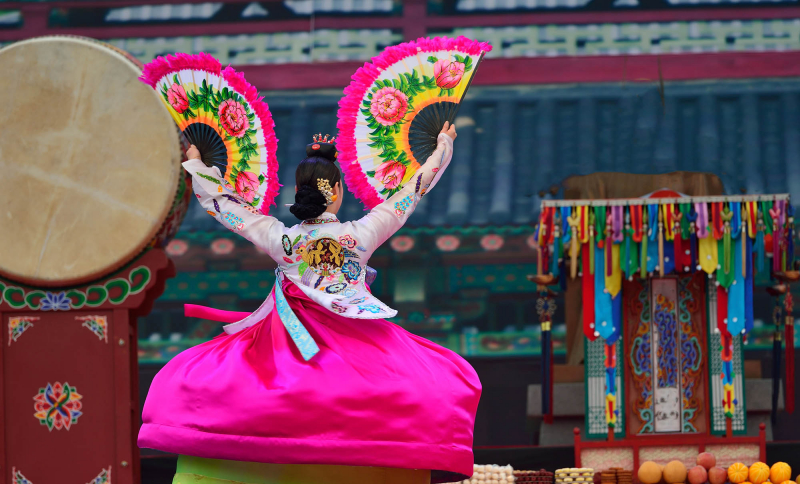
https://unknews.unk.edu/ -
It is considered impolite to wear shoes inside of someone's house, and every Korean home is a shoe-free zone. Wearing shoes inside a Korean home is not only impolite, but it is also unfortunate and filthy. When you enter, be courteous and take off your shoes.
When you first enter a Korean home, there is a tiny place where you can take off your shoes. It is lower than the rest of the floor, so you can tell. Stepping up into someone's home indicates that you are entering a no-shoe zone, thus you should take off your shoes right away. Depending on the house you're visiting, you might be able to wear the guest slippers.
In Korea, crossing your legs in front of a "superior" is considered impolite. Higher social status in Korea is indicated by either a person's occupation or age. In front of friends and those who share your social status (or lower), crossing your legs is not seen as impolite.
Sitting with your legs straight or slightly apart is preferred. Legs crossed is viewed as being uncoordinated or inconsiderate to the other person. Therefore, you should sit up straight and keep your hands on your lap. Honesty and focus are demonstrated through open body language.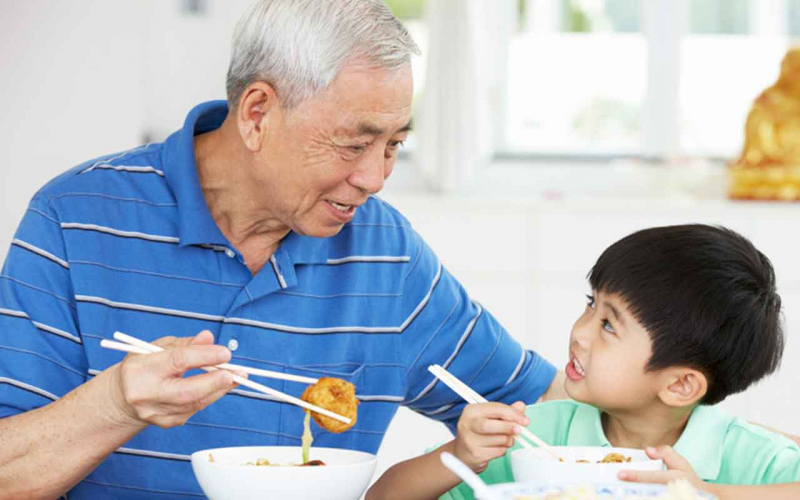
https://www.makemytrip.com/ 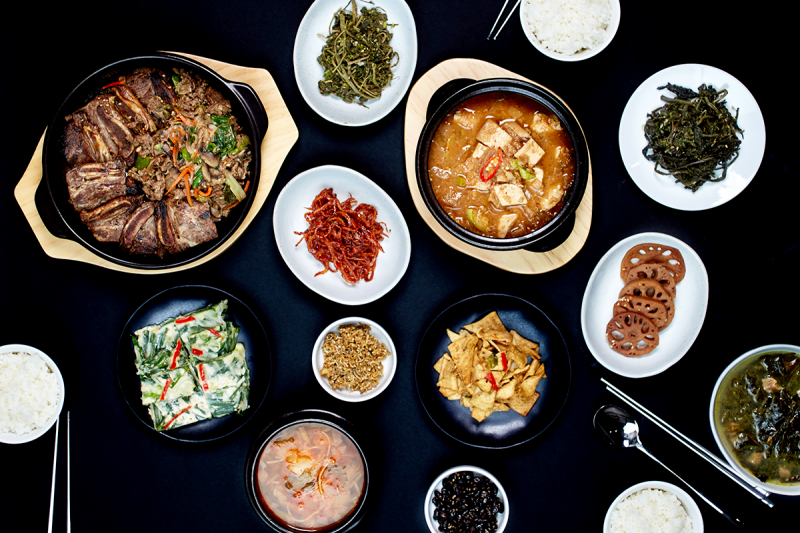
http://crazykoreancooking.com/ -
Is tipping appropriate when visiting Korea a common query? Tipping is not at all usual in Korea, unlike some other nations where it is rather widespread. In Korean restaurants and cafes, there is no custom of tipping and typically no provision for doing so.
The price listed on a menu is the price you must pay. Tax has already been added and won't be added afterwards. Although they are occasionally found in some taverns and independent cafes, tip jars are uncommon in Korea. Why do people in Korea not tip? Tipping is uncommon for a number of cultural reasons. First off, it never became commonplace and consumers aren't used to paying more than the advertised amount. Tips are not required because staffing costs are covered by prices.
Giving customers courteous treatment is an important aspect of preserving social harmony; failing to do so would cause them to lose face and would go against society's fundamental Confucian principles. Therefore, since good service is always given, there should be no need to tip. In fact, tipping one person necessitates tipping others, or else social unrest may result. The wisest course of action is to not tip at all because tipping everyone is impractical.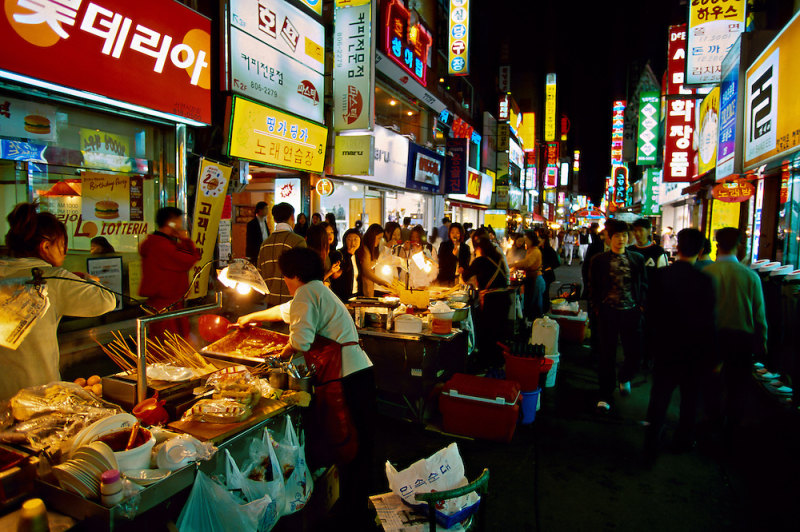
https://blaineharrington.photoshelter.com/ 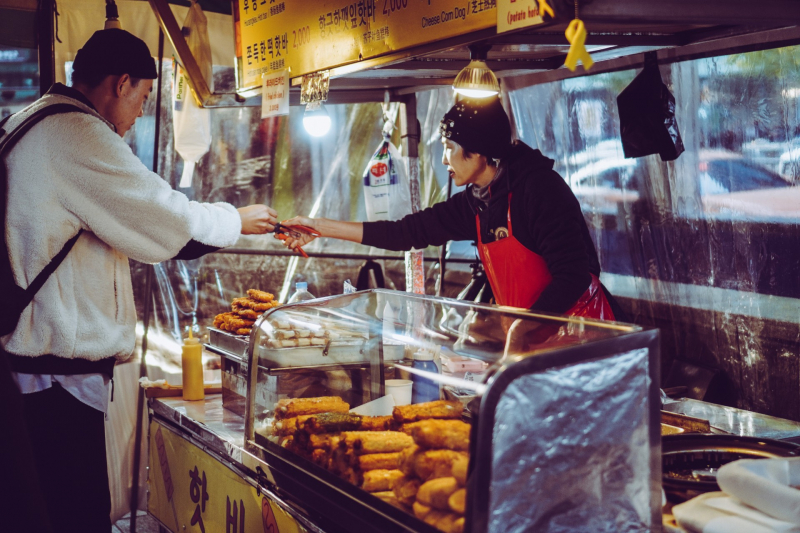
https://www.tourhero.com/ -
In Korea, it's polite to avoid close physical contact, but it's also appropriate to respect others' personal space. This means that you shouldn't approach people too closely, wave your arms about close to them, or otherwise move your body in a way that might make people feel uneasy.
For instance, if you're mingling with Korean friends, try not to constantly touch or wave your arms in front of them. In general, Koreans wouldn't do it unless they were very close to the other person because it may make them look bad. Invading someone's personal space violates traditional Korean societal norms, which will be discussed in greater detail later, and can lead to awkward situations as well as embarrassment for the one in question.
In a society where hierarchy is so crucial and individualism is covertly frowned upon, respect is essential to establishing and preserving harmony. There are three appropriate methods to behave with deference in Korea, including proper handshakes, bowing, and gift-giving. There are established guidelines that must be observed in every situation to prevent disrespect. Learning these three basic forms of respect will show that you are aware of Korean cultural norms and will make it easier for you to integrate into Korean culture.
https://www.tripsavvy.com/ 
https://www.roadaffair.com -
It's polite to provide a present for the host while visiting a Korean individual in their house. This expresses respect and appreciation for the person for inviting you to their home. Bringing a gift enhances your ability to make friends and makes the host happy.
Baked foods, sweets, or a compact bunch of flowers make excellent presents for house visits in Korea. In general, anything that can be used at that moment is allowed. Spending excessively, however, burdens the other person in social situations. It's always a pleasure to wrap.
For information on traditions and etiquette guidelines that will assist you in selecting and presenting the ideal gift, see the section on gift-giving at the conclusion of this article. In Korea, giving and receiving gifts are both done with two hands. Present the gift to the other person by holding it out in front of them as you wait for them to accept it.
Don't be surprised if they put the gift somewhere out of sight or take it to another room to open since it's considered disrespectful in Korea to do so. If the present is intended to be consumed immediately, it will likely be transported to the kitchen to be placed on a plate.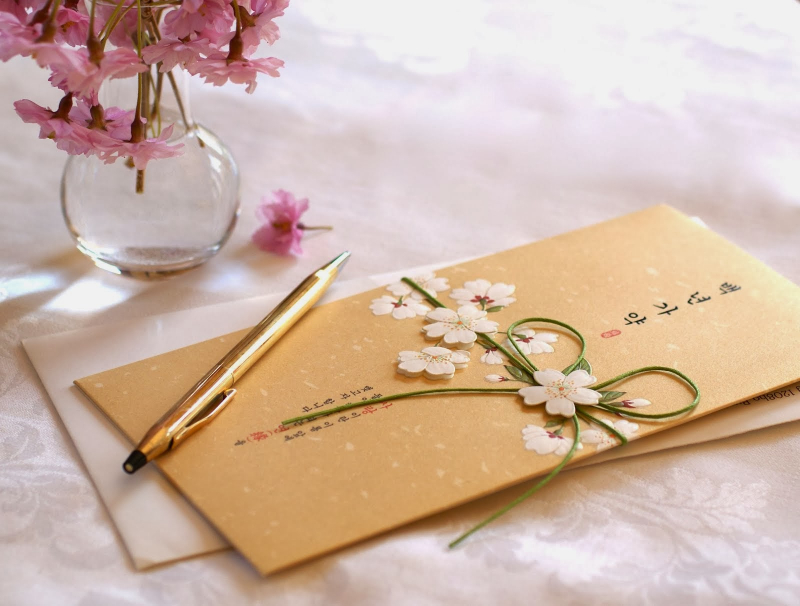
http://younique-lifestyle-of-korea.blogspot.com/ 
http://morningcalmadness.blogspot.com/ -
People in need have seats reserved on Korean buses and subways. Allowing those who require these seats to use them is polite. This covers the old, the ill, the young, and the expectant. In contrast to the seats closest to the door, which are intended for pregnant women, the ends of subway carriages are for passengers in need. The reserved seats on Korean buses are frequently vividly colored. In Korea, exercise caution when eating and drinking outside.
In Korea, there aren't many public garbage cans, thus most people take their waste home with them. If you can't find a trash can, you shouldn't just leave your trash on the ground. If you can't find a trash can, you shouldn't just leave your trash on the ground. Since there are no trash cans on the mountain paths, this is true when hiking in Korea. Bring a little plastic bag for food waste as it is one of my top Korean hiking suggestions. This advice is applicable even outside of Korea.
Being cautious when utilizing public transportation is another crucial factor to take into account when eating and drinking. Eating and drinking on public transportation has recently been outlawed in Seoul. Although it's still legal, try to be considerate, stay away from stinky meals, and take your trash with you.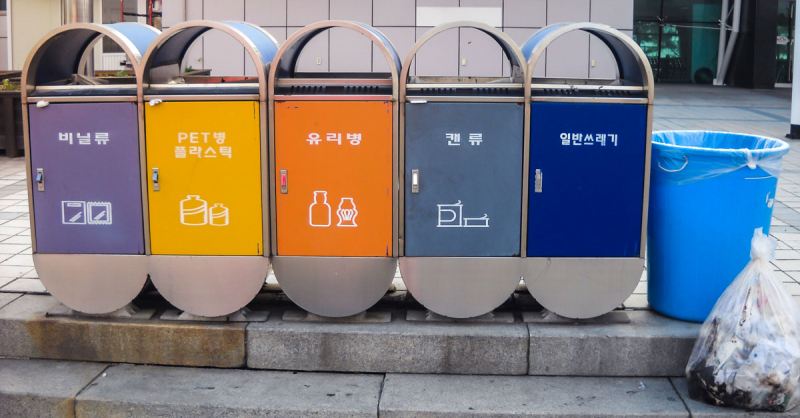
https://weather.com 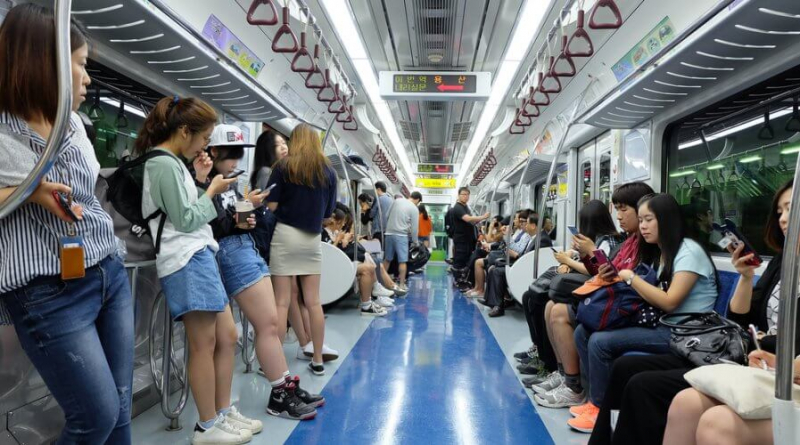
https://travelelog.com/































